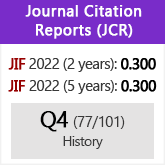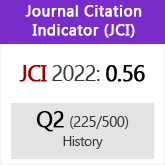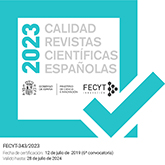Mapping Skies and Continents: The Production of Two Portuguese Scientific Atlases in the Era of Napoleonic Expansion (1799-1813)
DOI:
https://doi.org/10.3989/chdj.2021.020Keywords:
Terrestrial Atlas, Celestial Atlas, Portuguese Imperial Mapmakers, Astronomy, Scientific NetworksAbstract
To what extend the circulation of scientific knowledge was shaped by the European imperial geopolitics in the late-eighteenth century? Recruited to fulfill tasks increasingly considered essential to the very workings of imperial administrations, scientific practitioners of the time paradoxically seem to make use precisely of this encroachment in state apparatuses to secure some degree of autonomy for their nascent field. Thus, every material form of circulation of scientific information must be ultimately understood as an act of political consequences. Here we present these ideas through the analysis of two concrete scientific artifacts, which can exemplify the circulation of scientific information inside and across empires: two atlases, one terrestrial and one celestial (the latter being a version of Flamsteed’s famous atlas of 1729, by way of intermediate French editions), produced in Portugal at the turn of the nineteenth century. Discarding the simple assumption that such cartographic artifacts might have a “utilitarian” use to Portuguese imperial administration, we aim to insist on their political and communicative nature, grounded on their modes of participation in trans-imperial pathways of circulation of knowledge, people, practices, and models of scientific authority (entangling Britain, France, and the Americas in multiple time scales). We also highlight how the atlases contribute to the affirmation of new patriotic science in Portugal, and explore the markedly didactic vocation of both objects, which also stress the question of the recruitment and reproduction of a new kind of imperial elite.
Downloads
References
Araújo, A. C. (2000) O Marques de Pombal e a Universidade. Coimbra: Imprensa da Universidade. https://doi.org/10.14195/978-989-26-0373-5
Ash, M. G. and Surman, J., eds. (2012) The Nationalization of Scientific Knowledge in the Habsburg Empire, 1848-1918. Houndmills and New York: Palgrave MacMillan. https://doi.org/10.1057/9781137264978
Bourdieu, P. (1976) "Le champ scientifique." Actes de la Recherche en Sciences Sociales, 2/3, pp. 88-104. https://doi.org/10.3406/arss.1976.3454
Baily, F. (1835) An Account of the Revd. John Flamsteed, the First Astronomer-royal: Compiled from His Own Manuscripts, and Other Authentic Documents, Never Before Published. London: By order of the Lords Commissioners of the Admiralty.
Cunha, L. F. F. (2010) O acervo iconográfico da Biblioteca Nacional. Rio de Janeiro: Biblioteca Nacional.
Espagne, M. and Werner, M., ed. (1988) Transferts. Les relations interculturelles dans l'espace franco-allemand (XVIIIe-XIXe siècles). Paris: Éditions Recherche sur les civilisations.
Faria, M. F. (2005) A imagem impressa: produção, comércio e consumo de gravura no final do Antigo Regime. Tese de Doutoramento. Portugal: Universidade do Porto.
Frasca-Spada, M. and Jardine, N., eds. (2000) Books and the Sciences in History. Cambridge: Cambridge University Press.
Glass, I. S. (2012) Nicolas-Louis De La Caille, Astronomer and Geodesist. Oxford: Oxford University Press. https://doi.org/10.1093/acprof:oso/9780199668403.001.0001
Johns, A. (1998a) "Science and the Book in Modern Cultural Historiography." Studies in the History and Philosophy of Science, 29, pp. 167-194. https://doi.org/10.1016/S0039-3681(98)00004-1
Johns, A. (1998b) The Nature of the Book: Print and Knowledge in the Making. Chicago and London: University of Chicago Press.
Kanas, N. (2019) Star Maps: History, Artistry, and Cartography. Cham, Switzerland: Springer Nature. https://doi.org/10.1007/978-3-030-13613-0 PMId:30736274
Kantor, I. (2004) "Ciência e Império: trajetória de ilustrados na segunda metade do século 18." In: M. C. Ruivo, org., Laboratório do Mundo: ideias e saberes do século XVIII, Catálogo da Exposição na Pinacoteca do Estado de São Paulo. São Paulo: Pinacoteca do Estado de São Paulo, pp. 27-37.
Kantor, I. (2016) "Impérios portáteis: três Atlas na era das revoluções atlánticas." In: A. B. Xavier, org., O Governo dos Outros: poder e diferença no império português. Lisboa: Instituto de Ciencias Sociais, pp. 509-521.
Kury, L. (2004) "Homens de ciência no Brasil: impérios coloniais e circulação de informações (1780-1810)." História, ciências, saúde: Manguinhos, 11, supl. 1, pp. 109-129. https://doi.org/10.1590/S0104-59702004000400006 PMId:15446267
Kusukawa, S. and MacLean, I., eds. (2006) Transmitting knowledge. Words, images and instruments in Early Modern Europe. Oxford: Oxford University Press.
Leme, M. O. P. (2019) "A Livraria do Padre Veloso e o Plano Editorial do Arco do Cego." In: F. J. Luna, ed., Frei Veloso e a Tipografia do Arco do Cego. São Paulo: Editora da Universidade de São Paulo, pp. 281-292.
Livingstone, D. N. (2003) Putting Science in Its Place: Geographies of Scientific Knowledge. Chicago and London: University of Chicago Press. https://doi.org/10.7208/chicago/9780226487243.001.0001
Martins, C. H. M. R. (2014) O programa de obras públicas para o território de Portugal continental (1789/1809). Tese de Doutoramento. Portugal: Faculdade de Arquitetura, Universidade de Coimbra.
Maxwell, K. (1995) Pombal: Paradox of the Enlightenment. Cambridge: Cambridge University Press.
Moraes, R. B. (2006) Livros e Bibliotecas no Brasil Colonial. Rio de Janeiro: Briquet Lemos Livros.
Mota, A. T. da (1972) Acerca da recente devolução a Portugal, pelo Brasil, de manuscritos da Sociedade Real Marítima, Militar e Geográfica (1798-1807). Lisboa: Junta de Investigações do Ultramar.
Pataca, E. M. and Luna, F. J., ed. (2019) Frei Veloso e a Tipografia do Arco do Cego. São Paulo: Editora da Universidade de São Paulo.
Pereira, J. M. D. (1812) Catálogo da Biblioteca da Academia dos Guardas Marinhas, criada por ordem de S.A.R. na cidade do Rio de Janeiro. Rio de Janeiro.
Raj, K. (2007) Relocating Modern Science Circulation and the Construction of Knowledge in South Asia and Europe, 1650-1900. Houndmills/New York: Palgrave MacMillan. https://doi.org/10.1057/9780230625310
Reis, A. E. (2009) Observatório Real da Marinha. Lisboa: Correios de Portugal.
Roberts, L. (2009) "Situating Science in Global History: Local Exchanges and Networks of Circulation." Itinerario, 33, pp. 9-30. https://doi.org/10.1017/S0165115300002680
Secord, J. A. (2004) "Knowledge in transit." Isis, 95, pp. 654-672. https://doi.org/10.1086/430657 PMId:16011300
Silva, A. M. D. (1993). D. Rodrigo de Souza Coutinho: textos políticos, economicos e financeiros. Lisboa: Banco de Portugal.
Silva, A. M. D. (2006) Portrait d'un homme d'État: D. Rodrigo de Souza Coutinho, Comte de Linhares (1755-1812), vol. II. Paris: Gulbenkian.
Tudela, A. P.; Campos, F. M. G. and Curto, D. R., eds. (1999) A Casa Literária do Arco do Cego: bicentenário, (1799-1801): «sem livros não há instrução." Lisboa: Imprensa Nacional-Casa da Moeda e Biblioteca Nacional.
Published
How to Cite
Issue
Section
License
Copyright (c) 2021 Consejo Superior de Investigaciones Científicas (CSIC)

This work is licensed under a Creative Commons Attribution 4.0 International License.
© CSIC. Manuscripts published in both the printed and online versions of this Journal are the property of Consejo Superior de Investigaciones Científicas, and quoting this source is a requirement for any partial or full reproduction.All contents of this electronic edition, except where otherwise noted, are distributed under a “Creative Commons Attribution 4.0 International” (CC BY 4.0) License. You may read here the basic information and the legal text of the license. The indication of the CC BY 4.0 License must be expressly stated in this way when necessary.
Self-archiving in repositories, personal webpages or similar, of any version other than the published by the Editor, is not allowed.
Funding data
Ministerio de Economía y Competitividad
Grant numbers PGC2018-095224-B-I00

















